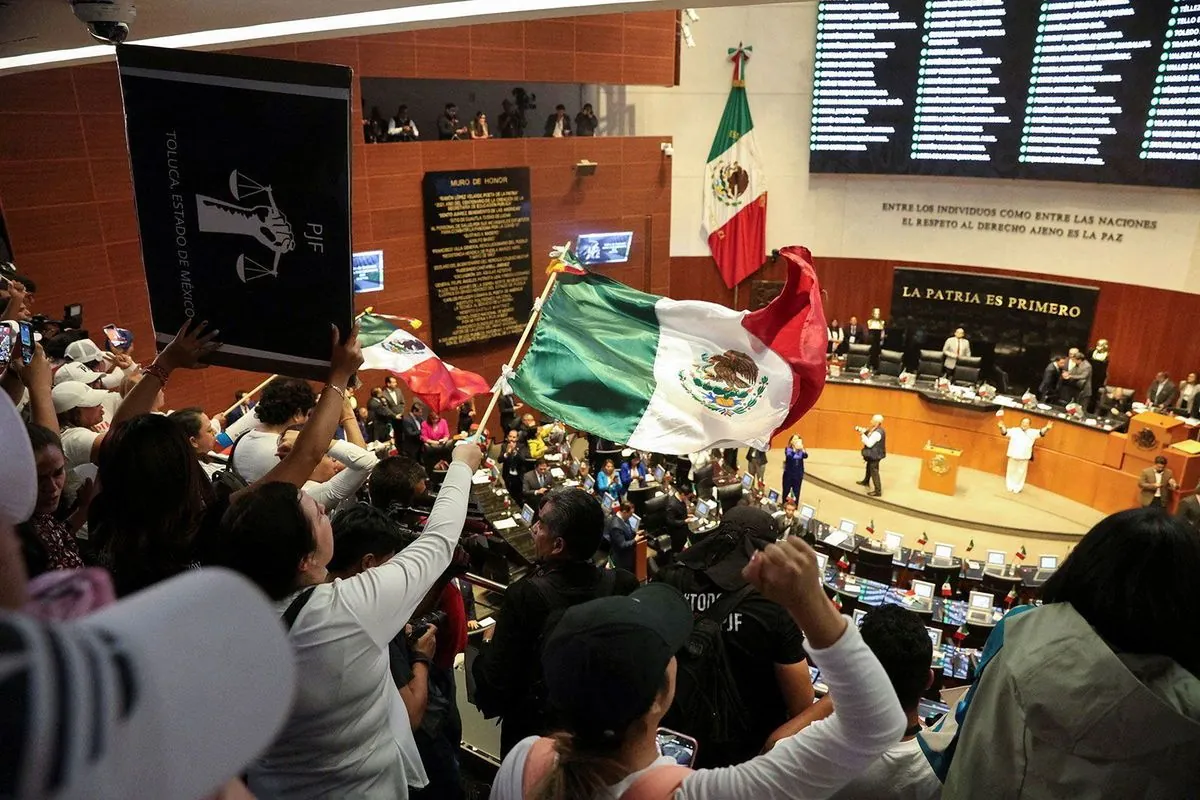Mexico Senate Approves Controversial Judicial Election Reform
Mexico's Senate passed a judicial overhaul requiring judges to be elected, sparking concerns about politicization. The bill, backed by the ruling party, now awaits state ratification amid democratic worries.

In a significant development, Mexico's Senate has approved a contentious judicial reform bill, marking a crucial step towards overhauling the country's legal system. The legislation, which passed with an 86-41 vote, mandates that all judges must now stand for election.
The reform, championed by the ruling Morena party of outgoing President Andrés Manuel López Obrador, has raised concerns among critics who fear it could lead to the politicization of the judiciary and potentially threaten Mexico's democratic foundations.

The Senate vote, occurring in the early hours of Wednesday, September 11, 2024, came after a tumultuous session on Tuesday. Hundreds of demonstrators breached the Senate building, temporarily halting proceedings as it became apparent that Morena had secured the necessary support to pass the proposal.
The legislation had previously passed through the lower chamber, where Morena and its allies hold a supermajority. However, the Senate presented a more significant challenge, requiring defections from opposition parties to achieve the required votes.
One such defection appeared to come from the opposition National Action Party (PAN). A PAN lawmaker, who had previously opposed the overhaul, took medical leave, and his father, a former governor, indicated he would vote in favor of the proposal.
The reform now faces its final hurdle: ratification by the legislatures of at least 17 of Mexico's 32 states. Given Morena's recent electoral gains, the party is believed to have the necessary support to clear this final step.
This judicial overhaul represents a significant shift in Mexico's legal landscape. The country's current judicial system is based on civil law, with the Supreme Court of Justice serving as the highest court. The Supreme Court consists of 11 justices, and the broader judicial branch encompasses both federal and state courts.
"This reform could fundamentally alter the balance of power in Mexico's government, potentially compromising the independence of the judiciary."
It's worth noting that Mexico's current constitution, enacted in 1917, can be amended with a two-thirds vote in Congress and approval from a majority of state legislatures. This process is now underway with this judicial reform.
As Mexico navigates this significant change, the implications for its democratic institutions and the principle of separation of powers remain a subject of intense debate and scrutiny.


































